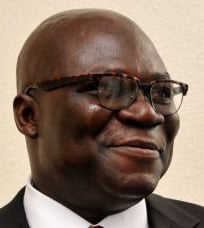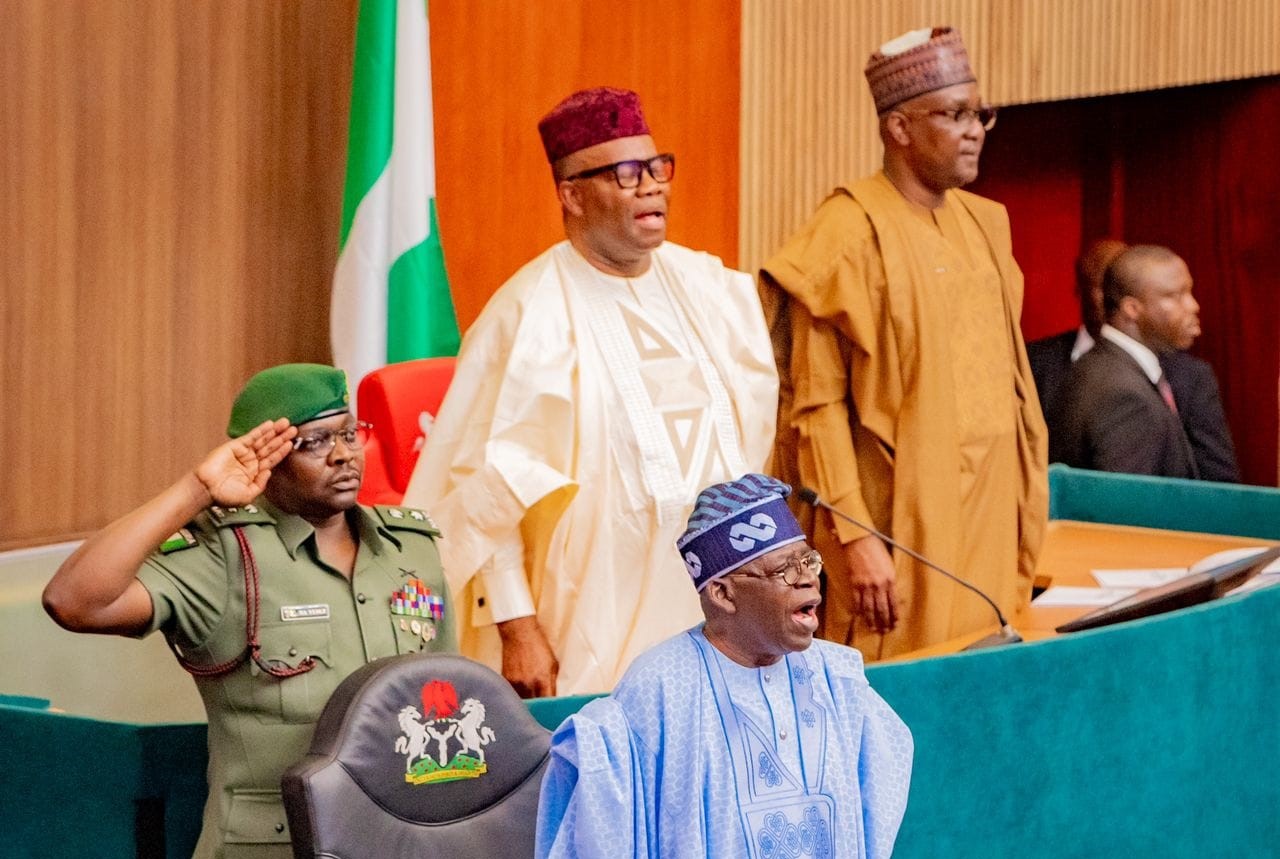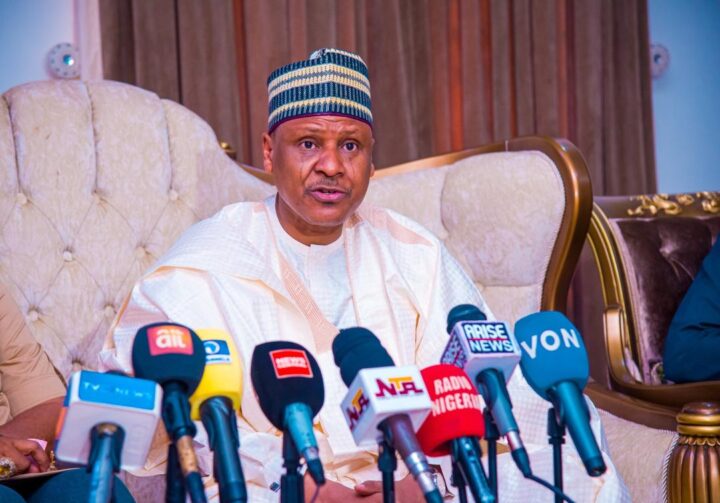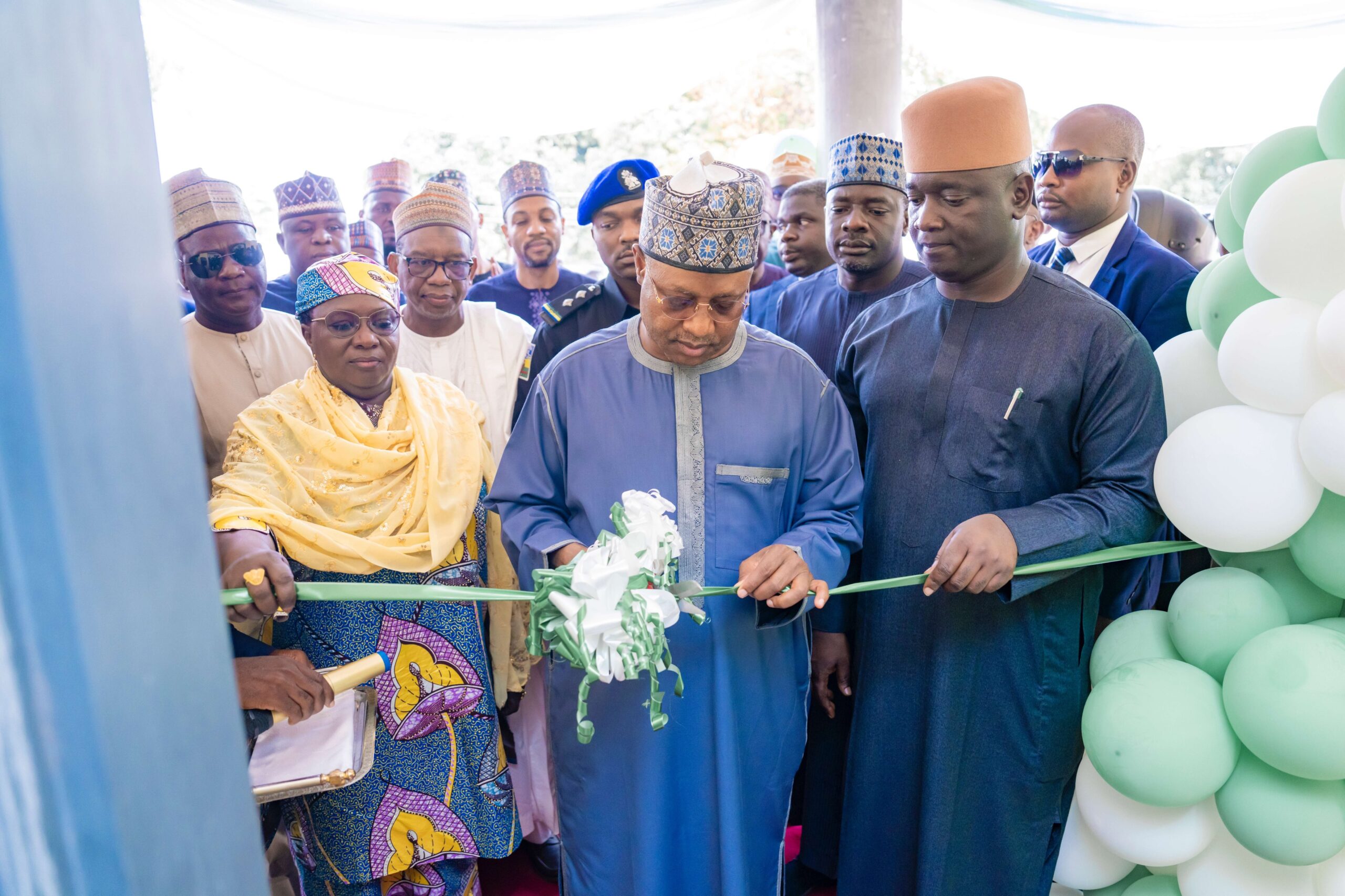One of the very easy tactics that a government adopts when it sees that it is unpopular with the public that it governs is to create a diversion, fly a kite or invent a subject of controversy to keep the people busy and draw them away from what exactly they should be talking about. The media gets easily sucked into the sensational subject because that sells the news and amid the frenzy that follows, with the commentariat and civil society beating their chests and staging a drama of their own, and the government fuelling the narrative, the big issues of the day are glossed over and government heaves a sigh of relief. This is precisely the diversionary tactic that has been adopted by the Tinubu administration by making the reversion to Nigeria’s old national anthem the big issue of the day as the administration marked its one year in office.
One week to May 29, the government sent an executive bill to the National Assembly which worked expeditiously on the bill, taking it through the necessary readings and passing it promptly. On May 29, Nigerians were further confused as to whether the President would address the National Assembly or not, with two spokespersons working for the same President on the same subject of public communication working at cross-purposes, contradicting each other, on a matter that should have generated no controversy whatsoever.
As it turned out, the President finally showed up at the National Assembly on May 29, in what the Senate President, Godswill Akpabio, described as a Nollywood “waka pass” appearance. But it just wasn’t a “waka pass” simply because the President had no written script – he spoke extempore. The visit acquired a major significance when it was disclosed that President Bola Tinubu had that same morning signed a bill amending the National Anthem Act into law and that a new National Anthem Act, 2024 had come into effect, cancelling the 1978 national anthem: “Arise o Compatriots” and compelling Nigerians to return to the old national anthem: “Nigeria We hail Thee”.
Many Nigerians were shocked and outraged. At the National Assembly, the lawmakers recited the old national anthem. The scandal was that many of them did not even know the lyrics of the same anthem they were supposed to be singing. The government’s move, its Nollywood theatrics, wittingly or unwittingly, had the prompt effect of generating controversy, a furore. A few days earlier, we had been told that the Presidency was conducting a ministerial record card session where ministers were required to give accounts of their stewardship. Most of the ministers had spent about eight or nine months in office and before May 29, at least eight ministers made presentations. With the National Anthem thrown into the mix, nobody talked again about the ministers’ scorecard.
Advertisement
Indeed, till this moment, there has been minimal discussion of the Tinubu administration’s scorecard in one year. The controversy over the National Anthem has pushed that subject off the front pages. Even the wise men who had advised that Tinubu should be allowed to spend one year in office before any assessment is done, have been studiously quiet. They have refused to respect their deadline. And so, Tinubu and his team, in their classical “teamship” fashion have, as they say, played a smart one on Nigerians. And we the people got fooled. Cluelessness has no better definition. Of all the things that assail Nigerians: the high cost of living, crude oil theft, food inflation, insecurity, corruption, divestments by multinational oil corporations, the flight of capital to other countries, the unabating spread of a culture of hate in the country, poor governance, bad politics, many Nigerians are left wondering why a national anthem should be a subject of urgent national importance.
Some of the immediate responses are noteworthy. Oby Ezekwesili, former Minister of the Federal Republic (Solid Minerals, Education), was quick to create a hashtag #NotmyNationalAnthem to express her objection to the reversion to the colonial national anthem. She made it clear that she would always sing the 1978 National Anthem “Arise O Compatriots”, and not “Nigeria We Hail Thee”. She was of the view that this was “an egregious case of Majoring in the Minor…repugnant to good conscience.” She was soon joined by Senator Shehu Sani who wondered aloud about the Tinubu administration’s misplacement of priorities. When the matter was debated on the floor of the Senate, Senator Adams Oshiomhole (Edo North) objected to the use of the words; “native and tribe” in the old national anthem. Many Nigerians agreed with him. “Native and tribe” are pejorative words with which the colonialists who gave Nigeria a national anthem at independence in 1960 identified us. Oshiomhole was hushed up. The majority had their way.
Within days, school pupils were already being taken through the ordeal of learning the old anthem. A video soon went viral of the dance-and-song-loving Governor of Osun State, Senator Ademola Jackson Adeleke trying to re-learn the national anthem. But it was only a matter of time before the conscientious objectors took centre stage. Aisha Yesufu, the activist was at an event where the old, now new National Anthem was played and she refused to stand up. Everyone glared at her. She neither budged nor flinched. She has since defended her choice by dismissing the national anthem as an “obnoxious law”. She added: “We are citizens, not slaves.” She went a step further to claim that “Tinubu was not voted for. He rigged his way to office. How dare he?” Mrs Yesufu has since been supported by Mrs Oby Ezekwesili who returned to the subject, stating that the National Assembly engaged in “a Kangaroo Act of violating the Constitution”.
Advertisement
The legal line highlighted by Ezekwesili has also been taken up by a civil society group: the Association of Legislative Drafting and Advocacy Practitioners which has now gone to court to argue that the court should declare the new national anthem illegal and unconstitutional because
- The National Assembly did not conduct a public hearing as required under Section 60 of the 1999 Constitution. However, the National Assembly insists that there was a public hearing. The protesters insist that nobody was aware of any public hearing: when, where, and how was it held?
- No letter of transmission of the said Bill was sent to the President as required by law. Nigeria is a funny country. The said letter can be manufactured and backdated. It would be a bigger scandal for the President of Nigeria to announce a law to which he did not append his signature.
- The Association of Legislative Drafters also argues that the expenditures associated with the National Anthem Act 2024 are not captured in the 2024 Budget;
- That the new anthem would impose financial burden on Nigerians including costs such as man-hours that would be spent updating official documents. They forgot to add that learning a new anthem is in itself an unnecessary burden but they were quite right to say that any law that does not follow due constitutional process cannot stand as held in AG of Bendel State vs. AG of the Federation & 22 Ors. (1981).
The foregoing objections notwithstanding, there have also been persons who have supported the reversion to the old national anthem. Senator Godswill Akpabio, Chairman of the National Assembly, was quoted as saying that “the most profound act of Tinubu is taking Nigeria back to the old national anthem”. Please, what is profound about a thoughtless, impulsive legislative and executive act that required no serious reflection and has no bearing whatsoever on good governance? My friend and colleague, Professor Anthony Kila has dismissed Akpabio’s statement as sycophancy writ large. But what can we also make of the statement attributed to Hon. Philip Agbese, Member of the House of Representatives (Ado/Okpokwu/Ogbadibo Federal Constituencies) who reportedly said “the old national anthem is a major step towards the country’s return to glory days”. Haba! How?
The more intelligent defence of the reversion to the old and new national anthem came from Professor Mike Ozekhome, the legal luminary who has argued repeatedly that he, indeed, canvassed for a return to the old national anthem at the 2014 National Conference, a motion that was unanimously carried at plenary and which formed one of the major recommendations of the conference. Ozekhome, who studied English, before he studied Law and rose to the very top in that chosen vocation rests his argument on what he considers the linguistic profundity of the old national anthem. He thinks that the phrasing of the old national anthem evokes emotions that align more with the Nigerian situation. He has also been identified as one Nigerian who attended the public hearing that the Association of Legislative Drafting and Advocacy Practitioners insists never took place. Who else attended that public hearing?
Besides, Ozekhome has been reminded that the 2014 National Conference that he quotes triumphantly as “the man who saw tomorrow” had far more fundamental resolutions that have been ignored most conveniently by the Tinubu administration viz: review of fiscal revenue sharing formula, creation of new states, qualification to become President – that is anybody aspiring to be President of Nigeria must have at least a university degree; rotation of Presidency; decamping – any elected official who cross-carpets must automatically forefeet his seat; acting Presidency – when a President dies in office, the Vice President can only act for 90 days during which an election to the same office shall be conducted; open grazing – cattle routes and grazing reserves should be phased out to encourage ranching; a new state for the South East for purposes of equity and balance; review of the form of government; local government autonomy, removal of the immunity clause, state police, abolition of sponsorship of religious pilgrimages. Out of all these weightier issues, it is curious that the one that catches President Tinubu’s fancy is the recommendation about the national anthem! And the law was passed within a week – quite a record in legislative efficiency that deserves deeper probe.
Advertisement
The whole saga got really messy when it became apparent, and the social media amplified this that indeed in 2022, ahead of the 2023 general election, President Tinubu, then a candidate and aspirant, had granted an interview where he expressed preference for the old national anthem and vowed in these words: “the old anthem is about service, diversity and commitment. I don’t know why we changed it. If I had my way, I would bring it back.” Tinubu won the 2023 presidential election and now he is having his way and he has changed Nigeria’s national anthem to satisfy his own wish. Laws are to be made for the common good, not for persons and their whims. One of my favourite passages in Lee Kuan Yew’s book, “From Third World to First” is where he writes about African leaders and lawmaking, and how African leaders create laws to serve personal interests rather than the interest of the people. In his view, this hinders development and perpetuates poverty.
In that book, Lee Kuan Yew wrote specifically about his visit to Nigeria for a Commonwealth meeting hosted by Prime Minister Sir Tafawa Balewa. There was a banquet at the Federal Palace Hotel, Victoria Island, where Minister Yew sat opposite Nigeria’s Minister of Finance, Chief Festus Okotie-Eboh. Of the Chief, Yew reports in his book that: “He was going to retire soon. He had done enough for his country and now had to look after his business, a shoe factory. As Finance Minister, he had imposed a tax on imported shoes so that Nigeria could make shoes. Singapore Foreign Minister Sinnathamby Rajaratnam and I were incredulous. Chief Festus had a good appetite that showed in his rotund figure, elegantly camouflaged in colourful Nigerian robes with gold ornamentation and a splendid cap. I went to bed that night convinced that they were different people playing to a different set of rules.”
Minister Yew is certainly right. Nigerians are a different people playing to a different set of rules. As it was in the 60s, so it is now in 2024. The world is talking about the future of things driven by Generative AI, we are here in 2024 talking about the national anthem, we are busy going back to the past, not knowing what to do with the present or the future. To worsen matters, President Tinubu also wears a splendid cap! And he has made a law, with the support of the National Assembly to please himself. It must be noted that even the Attorney General of the Federation and Minister of Justice had to intervene to say that the National Anthem Act should have been subjected to wider consultation. Thus, the country’s chief law officer tactically disowned the new national anthem. Law is made for the people, not the other way round, and the true test of any law lies in its acceptance by the people. Kayode Ajulo, SAN, OON and AG of Ondo State has put in an opinion that “the Nigerian National Anthem Act stipulates that failure to stand during the rendition of the anthem is an offense punishable by imprisonment, fine and or both fine and imprisonment.” In other words, if more Nigerians followed Yesufu and Ezekwesili’s line of protest, Tinubu would have more than enough people to arrest. Alternatively, he may face a situation where most Nigerians regard the return to the old anthem as a joke. Already, Nigerians ever so ready to create a social media skit out of everything have invented many versions of the National Anthem; fuji, hip hop, juju and reggae versions! So, how many people will Tinubu arrest?
Section 24 (a) of the 1999 Constitution on essential duties of citizens says that citizens are required to “abide by this Constitution, respect its ideals and its institutions, the National Flag, the National Anthem, the National Pledge and legitimate authorities.” This is in Chapter Two, the justiciability of which remains a subject of debate. I have not seen a copy of the National Anthem Act of 2024 – if at all it exists, it is yet to be published, but it would be most strange indeed to send anybody to prison or asked to pay a fine for refusing to sing the national anthem. Aisha Yesifu may well be right when she proclaimed that “we are citizens, not slaves.” All things considered, the re-introduction of “Nigeria We Hail Thee” is a gamble. Nigerians who argue that it is wrong to return to an anthem written by Lillian Jean Williams and set to musical score by Frances Berda are beginning to ask why the Tinubu government has a colonial mentality. In 1978, the then Nigerian military government opted for a new national anthem: “Arise O Compatriots,” which was selected from the lyrics of five winning entries, fused into one. The entries were submitted by P. O. Aderogba, Babatunde Ogunnaike, John Ikechukwu, Eme Etim Akpan and Sotu Omoigui. The Director of Music, Nigeria Police Band, Benedict Odiase selected the lyrics, fused them and composed the music.
Advertisement
It is most unfortunate that we are busy discussing the national anthem rather than more important issues. This is the very height of cluelessness. We may soon end up as a nation with two national anthems. Those who claim that Tinubu’s national anthem is a profound act, and an achievement of great national importance should cease and desist forthwith from sounding so ridiculous.
Advertisement
Views expressed by contributors are strictly personal and not of TheCable.
Add a comment







